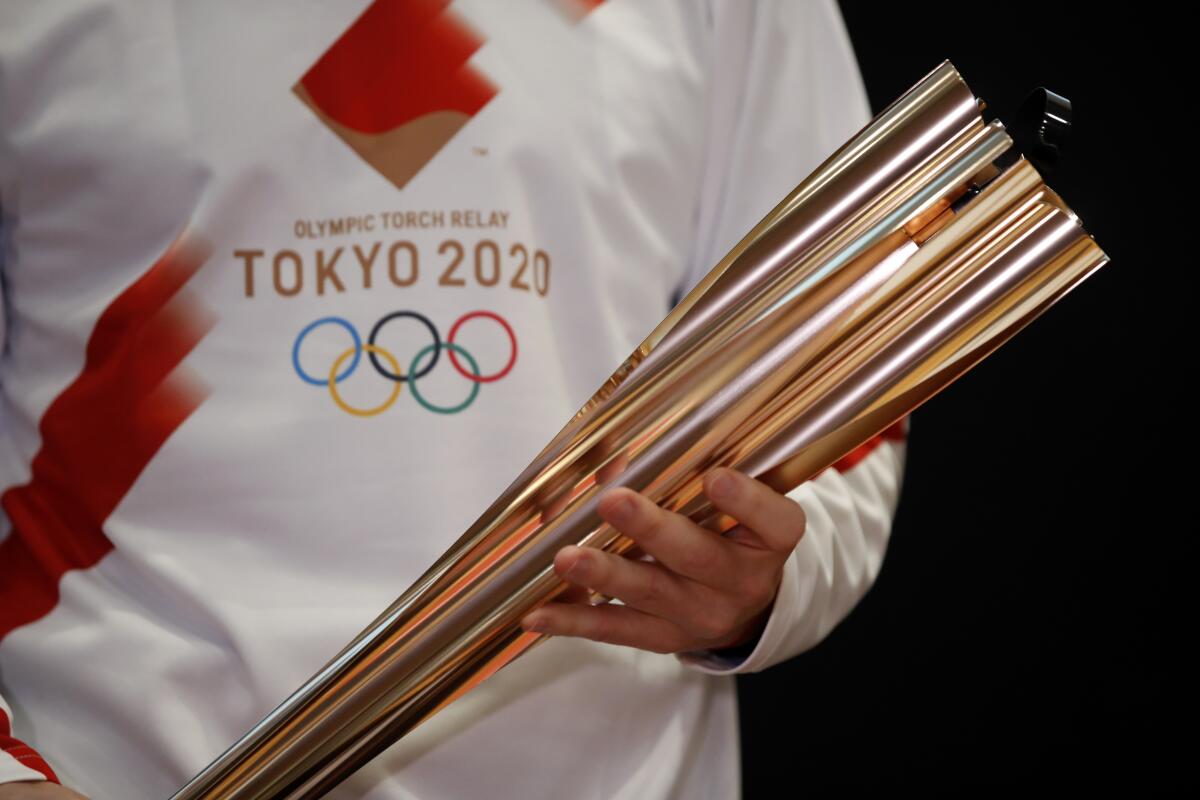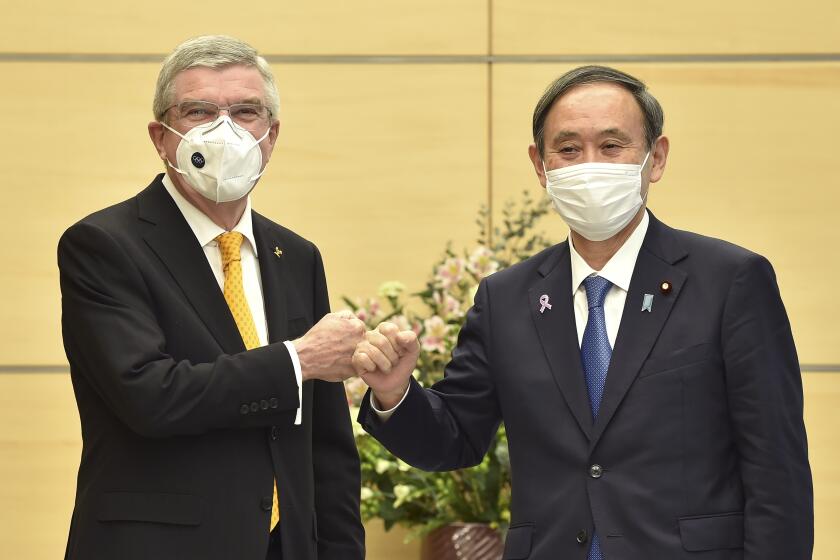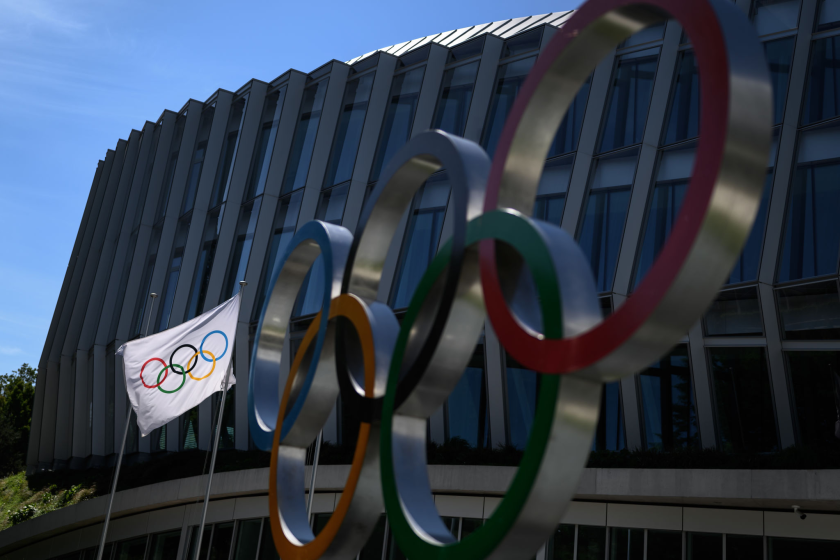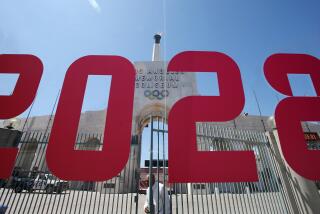Official price tag of Tokyo Olympics rises 22% to $15.4 billion

- Share via
TOKYO — The official cost of the postponed Tokyo Olympics has increased to $15.4 billion, a rise of 22%, the local organizing committee said Tuesday in unveiling its new budget.
In an online news conference, organizers said the Summer Games in the Japanese capital would now cost nearly $3 billion more to stage than the $12.6 billion envisioned in last year’s budget.
The added expense is due to the one-year delay brought on by the COVID-19 pandemic, including renegotiating contracts and implementing measures to combat the coronavirus.
The Olympics are to open July 23, 2021. The Paralympics follow Aug. 24.
Despite the organizing committee’s official estimates, audits by the Japanese government over the last several years say that the costs are even higher than stated, at least $25 billion.
When the International Olympic Committee awarded the Games to Tokyo in 2013, the city said the event would cost about $7.5 billion. An Oxford University study earlier this year said the Tokyo Games were on track to be the most expensive Summer Olympics on record.
IOC President Thomas Bach says participants and fans at next year’s postponed Tokyo Olympics are likely to face COVID-19 vaccination requirements.
Japanese government entities are responsible for all of the cost except for $6.7 billion from a privately funded operating budget.
“The IOC and TOCOG [Tokyo organizing committee] want the public budget to appear as small as possible, not only to guard against public criticism but also to not discourage future candidate cities,” Franz Waldenberger, director of the German Institute for Japanese Studies in Tokyo, wrote in a recent paper examining Olympic costs.
Waldenberger noted that the Tokyo city government and branches of the central government were using the Olympics as “a window of opportunity to obtain additional” funding.
Organizers in October announced cost reductions of $280 million, cutting out frills such as hospitality offerings. However, no cuts have been made to the sports program, with a full complement of 11,000 athletes and tens of thousands of officials, judges and sponsors expected to attend.
Russia can’t use its name, flag or anthem at the next two Olympics. The decision in the doping case has drawn mixed reactions around the world.
Decisions about fans and preventive measures for the pandemic are expected to be rolled out in 2021.
Japan has controlled COVID-19 better than most countries, with slightly more than 2,800 deaths attributed to the coronavirus. But new cases have been rising for a month, adding to public skepticism about the Olympics.
In a telephone poll published this month by Japanese broadcaster NHK, 63% of respondents said the Olympics should be postponed or canceled.
The IOC and local organizers have said the Olympics would be canceled if they cannot be held this time.
More to Read
Go beyond the scoreboard
Get the latest on L.A.'s teams in the daily Sports Report newsletter.
You may occasionally receive promotional content from the Los Angeles Times.












